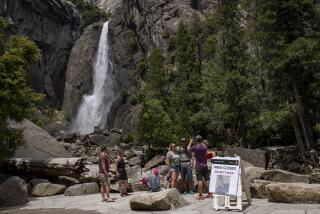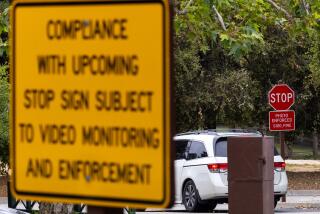Tahoe ski resort reverses parking policy after being hit by lawsuit, pandemic losses
- Share via
Free parking, as precious to some skiers as virgin mountain powder, has returned to one Lake Tahoe resort but not before its corporate owner waged an expensive yearlong legal battle with two season pass holders.
An 80-year-old attorney and another man whose first job out of college was parking cars at the mountain ski center now owned by Vail Resorts filed separate lawsuits when Northstar California replaced traditional free parking with $20 daily fees ($40 weekends) — after they’d purchased their passes.
Unlike visitors from San Francisco, who may spend the entire weekend skiing, locals like attorney Steven Kroll and Robert Grossman will often make a few quick runs in the morning then jump in their cars to head for work.
Both navigated the steep slopes that way for decades. They never imagined the uphill battle they’d face when they learned months after they’d renewed their passes for 2019-20 that it would cost them $2,000 for the season to park in the lot they’d used for free for years.
Back in the day Northstar, a ski resort in the North Lake Tahoe area, was a country cousin to more hardcore Squaw Valley and Alpine Meadows.
Grossman eventually won a small claims court judgment for $692 plus $135 in costs.
Kroll came away with nothing after he was buried in an avalanche of opposition filings and agreed to dismiss his federal lawsuit for fear of being ordered to pay hundreds of thousands of dollars in legal fees and expenses.
“Never pick a fight with a big bully,” said Kroll, of Crystal Bay.
Last October, Grossman started hearing rumors about an unannounced policy change. So he called Northstar to see if it was true that the only free parking would be a mile-plus away, accessible via a shuttle bus that he figured would add an hour to each visit.
“I told them all you have to do to come out smelling great is give a parking pass to any season skier who asked for one,” he recalled. “They told me to go pound sand.”
Vail defended the fees as a way to help ease traffic congestion and speed overall access to the slopes. The company declined to comment on the lawsuits.
Grossman won in small claims court — where formal legal representation is prohibited — because the pass said refunds were allowed for those who didn’t ski once all season.
Vail appealed in Placer County court “and I start hearing from a whole bunch of attorneys,” he said. “I’m like, ‘Really?’ This is a $500 small claims case. I’m not going to pay $20,000 for a lawyer to defend me.”
To his surprise, the district court upheld the judgment. Grossman expected another appeal but recently received payment.
In his case, Kroll said Vail’s lawyers made it clear during a court-ordered settlement teleconference that lasted 12 minutes that they would do whatever necessary to delay a hearing.
The tipping point came when the judge threatened him with sanctions for the first time in his career.
“I thought, this does not look good,” Kroll said. “They had a law firm with 80 lawyers and all I had was me and my secretary.”
Kroll dropped his case. He and Grossman are skiing elsewhere.
Vail Resorts spokesman Russell Carlton said the parking fees helped ease congestion but proved unnecessary some days.
“Guest feedback” and COVID-19 contributed to the decision to reinstate previous free parking options, he said in an email to the Associated Press. “The ultimate goal of all operational decisions is to provide our guests the best overall experience when visiting our resort.”
More to Read
Sign up for Essential California
The most important California stories and recommendations in your inbox every morning.
You may occasionally receive promotional content from the Los Angeles Times.













